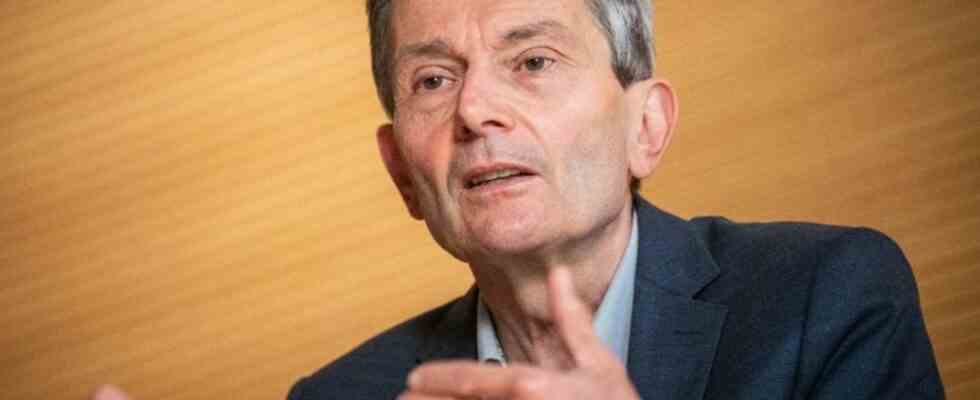Rolf Mutzenich
SPD faction leader: Don’t rule out talks with Putin
Rolf Mützenich, chairman of the SPD parliamentary group, in an interview with the dpa. Photo: Michael Kappeler/dpa
© dpa-infocom GmbH
Is there any point in talking to Russian President Vladimir Putin? Opinions differ on this. SPD faction leader Rolf Mützenich thinks that one should at least be open to talks.
SPD faction leader Rolf Mützenich advocates not ruling out talks with Russian President Vladimir Putin under certain conditions. “You can’t force such talks,” said Mützenich of the German Press Agency. “But if President Putin is ready for a resilient talks with the heads of state and government of the EU or NATO and Ukraine, that should not be ruled out in principle.”
Such talks would have to be made dependent on the concrete framework conditions. “And the Chancellor is experienced enough to decide when he considers such a conversation with the partners to be expedient,” said Mützenich. But he sees no special role for Germany. “On the contrary, I warn against a special role now as in the past.” Instead, there must always be close agreements with the partners.
Only sporadic contacts
“I continue to assume that this war will not be decided on the battlefield with an absolute victory, but in the end only through talks, through negotiations, through agreements,” emphasized Mützenich. This is how wars have ended in the past. “We should always be able to use certain signals that indicate a possible ceasefire to re-engage in diplomatic talks. However, such signals have so far been lacking.”
Since the Russian attack on Ukraine at the end of February, there have only been sporadic contacts between the western allies and Russia. Scholz last spoke to Putin on the phone several weeks apart. Ukraine and Eastern European allies are skeptical about these contacts.
Baerbock currently sees no opportunities for negotiation
Federal Foreign Minister Annalena Baerbock explained in the magazine “Stern” that she currently sees no possibility of negotiations with Russia. “What can you negotiate with someone who is not even willing to agree with the International Committee of the Red Cross on humanitarian corridors for civilians to flee?” asked the Green politician.
The chairman of the Foreign Affairs Committee of the Bundestag, Michael Roth, replied that Russia is still a permanent member of the UN Security Council, remains part of the G20 and belongs to the Organization for Security and Co-operation in Europe (OSCE). “Whether we like it or not, we will have to talk to representatives of Russia,” the SPD politician told the newspapers of the Bayern media group. Roth was skeptical as to whether telephone calls would persuade Putin to give in. “But we have to regularly hold up a mirror to this guy that he is on a fatal wrong path.”
Mützenich: Sanctions are not an end in themselves
A relaxation of the sanctions imposed on Russia because of the war of aggression is only conceivable, says Mützenich, if Putin clearly changes course. “If Russia made offers for a reliable ceasefire, if Russia were willing to open humanitarian corridors and conduct robust negotiations, only then can there be a political discussion about easing sanctions.” In addition, the Ukrainian government must go down this path.
The sanctions are not an end in themselves, but should lead to changes in behavior in Russia, stressed Mützenich. “But at the moment I don’t see them either in the military or in the political sphere.”
The western states have gradually tightened their punitive measures against Russia since the beginning of the war. Politicians from the left and the AfD have spoken out in favor of easing because the punitive measures are also a burden on the German economy.

